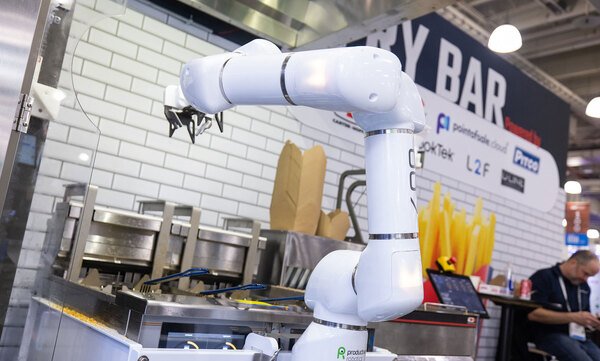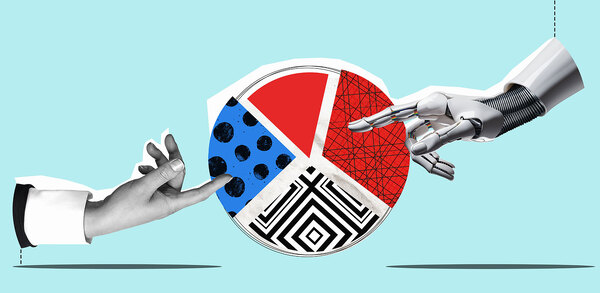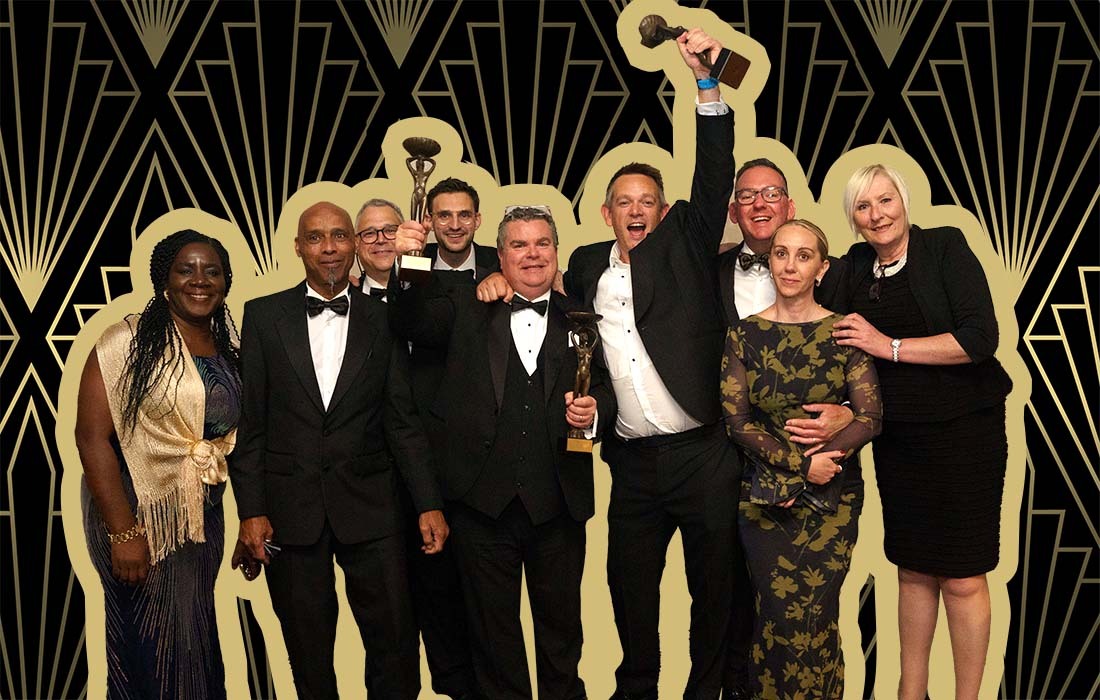How to personalise the booking experience
The more personal the booking experience, the more valued the guest feels. So how can you capture someone's likes and dislikes without having to hassle them for information? Elly Earls finds out
Ordering groceries online is a quick, personal and painless experience and can be done on any of the growing number of devices we can no longer live without.
So why shouldn't booking a hotel or restaurant be the same? It's a question travellers are asking more and more, and one that savvy operators are quickly learning to address. But how are they striking the balance between giving customers the recognition they expect and keeping things simple?
âIf guests arenât feeling recognised or if things are not clear, they will leave the booking with a click in under a couple of seconds,â says Paul Mulcahy, senior vice-president, commercial, at Mövenpick. âThereâs very little patience and rightly so. If it works in other categories and sectors, why shouldnât it work for hotels?â
Drawing up the data
Hotels are still mainly collecting the information required to personalise the booking process through pre-arrival and post-departure questionnaires.
âAsking too many questions at the initial booking stage can be a deterrent to some guests. However, guests are often happy to answer a pre-arrival questionnaire after they have made a booking,â says Adam Rowledge, general manager of the 60-bedroom Georgian House hotel in Londonâs Victoria.
âSending post-departure questionnaires via email to your guest the day after they have checked out is a great way to encourage feedback, and adding an incentive can also increase the chance of them making a repeat booking,â he says.
These forms can be generated and sent directly to a guestâs email using property management software (PMS) or customer relationship management software (CRM). Roberto Pajares, general manager of the Ampersand hotel in Londonâs Kensington, employs the same tactics. âWe find the simplest method is through a pre-arrival/post-stay email with links to e-concierge and guest surveys that feed back into our PMS,â he says. âWe also encourage long-stay guests [three nights or more] to communicate with us during their stay so we can add another layer of service or respond to any requests or concerns they may have.â
The information can then be used to speed up and personalise the booking process the next time the customer books. As Lorraine Garvie, director of rooms and revenue at Fairmont St Andrews, explains: âKnowing a guestâs booking preferences allows us to minimise the questions and simplifies the booking process â" knowing if theyâre regular travellers, their current outbound location, any previous visits to the hotel and other personal requirements will personalise
the reservation as well as creating an itinerary for their stay.â
This approach helps give the guest the confidence to book, Mulcahy says, adding that itâs crucial to articulate to the guest exactly why you need the data youâre
asking for. âTell them what youâre going to do with that information to make their life better,â he adds.
This is a point Philip Morris, corporate director of revenue management at the Dorchester Collection, agrees canât be stressed enough. âIf you ask a customer for information and then do not act accordingly, it goes from a positive response to an immediate negative,â he says. âWe are also very careful not to over-research a customer. Advising them that you know something about them because you checked out their Facebook page may be perceived as being over-intrusive.â
Equally, while guests clearly appreciate being remembered and understood, their tastes and preferences are fluid. âItâs important to acknowledge that previously captured data is not always set in stone,â Morris says.
âJust because a guest has a preference for a certain amenity in their room does not mean that will always remain the same. Equally, we have many guests that use our hotels for different reasons. In some cases, guests are travelling alone for business and on other occasions they are travelling with their partner or family. Understanding their needs and the context of each visit is vital.â
Digital transformations
Some hoteliers have gone one step further than the pre-arrival and post-departure questionnaires, implementing new technology on their websites to personalise the booking experience even more, although the general consensus is to exercise caution in this area. Booking engine provider Avvio, for example, offers a tool called Engage by Avvio, which works alongside its Convert by Avvio booking engine to give guests a personalised booking experience by displaying targeted messages to customers across all device types at various stages of the booking cycle.
Itâs a system Pajares is starting to look into. âWe are approaching personalisation through the booking process cautiously and with an eye to conversion, as the concern is if the process of personalisation lengthens the booking process then you potentially lose the customer making the booking [ie they get bored or fed up with the additional steps],â he explains.
âWhat we are looking at through Avvio is recognising return customers to the website and personalising relevant messages. For example, if theyâve booked a room then we could offer assistance with other bookings, such as theatres. But itâs early days for us with this technology.â
The Ampersand hotel isnât the only one experimenting. Hotels and hotel groups of all shapes, sizes and star ratings are looking into different ways to use technology. The Dorchester Collection is undertaking qualitative and quantitative research on what guests want and need and is also rethinking its entire technology architecture to enable an integrated and personal experience. The Georgian House hotel has also invested heavily in its digital function and the propertyâs new website allows the team to collate and analyse guestsâ data so they can be targeted with marketing to create a more personalised proposition.
Meanwhile, Fairmont St Andrewsâ focus has been on its loyalty programme. âDuring the reservation process guests are asked if they are part of the Fairmont Presidentâs Club and this automatically brings up the guest preferences,â McGee and Garvie explain. âHaving this data adds value to the guest booking experience as reservation agents can see the past booking trends of each loyalty member and make suggestions the guest may not be aware of but would be interested in based on the data collected in their profile.â
A breadcrumb approach
For Mulcahy, the real key is to keep the booking process down to as few steps as possible. âConsumers are so used to seamless experiences in other categories,â he says. âJust think of Uber. From start to end, the process of researching a taxi is so easy. The more straightforward you can make the booking process the better.â
Crucially, this doesnât mean hoteliers canât pick up the valuable customer data needed.
âYou need to have a âbreadcrumbâ type of approach to picking up the data and filling up the guestâs profile,â Mulcahy advises. âYou donât have to ask the guest for everything at the start; you can build it up during the encounters you have with them at different times.â
Websites such as LinkedIn, which tell you how much of your profile youâve completed and offer incentives to fill in more information, provide good comparisons. Yet the filling in of this vital customer profile is one of the biggest challenges facing hoteliers, as often different types of data about a guest are held in different systems.
Itâs a problem both Mulcahy and Morris are tackling head on. While Mövenpick embarked a year and a half ago on a full transformation of its commercial systems, so that there would be one PMS across the company on the cloud to include a single profile per guest, one of the Dorchester Collectionâs aims is to create a centralised hub to allow an overview of the customer profile, across the initial enquiry, booking, pre-arrival, stay and post-departure.
âOperationally, the objective is surfacing the right information about a guest at the most appropriate time. We use our customer engagement programme to gauge feedback as we are always seeking to understand our guestsâ needs better,â Morris says.
Not only could this profile be completed from the data the hotel holds about the guest, Rowledge believes, the hospitality sector could soon start going the way of online retailers such as Amazon, pooling an individualâs data from multiple sources for more accurate targeting and reselling.
âIt would be great if we were able to target a person who has booked tickets for a theatre just down the road or make more personalised recommendations of things to do in the hotel or the local area based on their past purchases,â he says.
âThis provides an operator with a fantastic opportunity to upsell as well as heightening the guest experience which will hopefully lead to increased loyalty and revenue.â
Booking by the hour
A new hotel booking model â" booking by hours rather than days â" is working its way across Europe.
ByHours.com, born in Spain four years ago, works like any other online travel agent.
It allows hotels to offer âmicro-staysâ â" three hours, say, instead of three days â"Â and is quickly growing in popularity in city centres and near airports across the continent.
âWeâre offering the hotel industry the chance to sell a product that theyâre not selling through their own website or other websites,â explains ByHours.com founder and chairman Guillermo Gaspart. âTheyâre not reducing the price of their product; theyâre introducing a new one.â
Hotels that have embraced the new model have seen big boosts to their businesses.
Less than five months after joining in February 2015, Hotel TRYP Madrid Airport Suites was putting through more than 400 transactions per month and, in its first year, the property achieved â¬120,000 (£103,000) in additional turnover.
Restaurants target their tables
Restaurants are also investing in IT systems to collect information about their guests, which can be used to create tailored marketing offers and boost loyalty.
âFor a venue using an integrated restaurant booking system connected to EPoS, every customer journey leaves a trail of valuable information, from the research and booking stage, right through to arrival, ordering, payment and feedback,â says Olivia Fitzgerald, managing director of online booking solution liveRES. This can capture data on everything from time of booking to orders, return visits, spend, no-shows and cancellations.
âLinking spend data to customer records allows you to segment your customer database and market to each group with a tailored offer that is aligned to their payment preferences. For example, you could focus your âprime steak and red wineâ promotion on those who have ordered steak and red wine in the past â" and not to vegetarians.
âUltimately, itâs about relationships and loyalty has to be earned â" itâs not a given. If your customers feel valued, then they are more likely to return time and again, which is better for the bottom line.â
Since implementing a fully connected restaurant booking system with liveRES and cloud-based analytic experts IOVOX, PizzaExpress has certainly seen the benefits.
Siobhán Fagan, IT director at PizzaExpress, says: âThrough these analytics, we can track the customer journey, measuring demand and booking trends, such a group sizes and busy periods. This helps with forward planning and helps to identify problem areas to adjust.â















